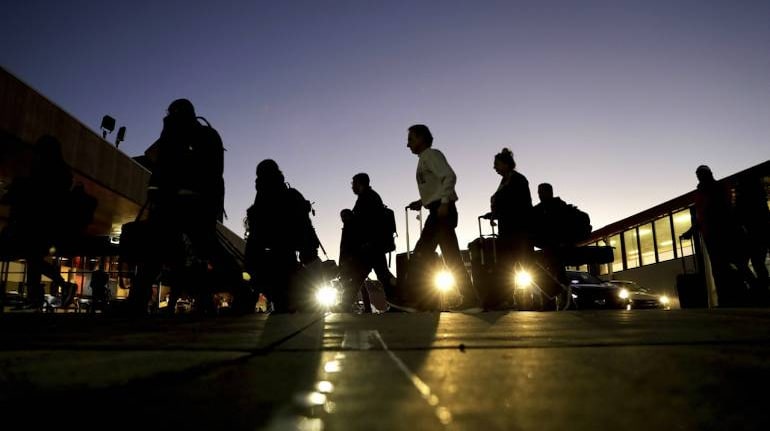



The Directorate General of Civil Aviation on January 28 extended the ongoing travel and visa restrictions on international commercial passenger services till February 28, 2021, citing the COVID-19 pandemic.
However, the DGCA exempted international all-cargo operations and flights specifically approved by it earlier.
pic.twitter.com/6dUwhvaWr5— DGCA (@DGCAIndia) January 28, 2021
Apart from this, the aviation regulator will allow international scheduled flights on selected routes on a case-to-case basis.
India extends ban on international flights till January 31, 2021Earlier on December 30, the Union Ministry of Civil Aviation extended the ban on international flights further by a month, till January 31, 2021.
However, the DGCA had maintained that cargo flights and limited international flights under bubble arrangement will continue.
India had banned international travel in end-March, coinciding with a similar restriction on domestic operations, and the national lockdown. Though it resumed domestic flights in May, international travel remained suspended as COVID-19 cases remained at high levels.
Meanwhile, the Civil Aviation Ministry informed that 15,147 repatriation flights were operated by the Air India Group under the Vande Bharat Mission till January 26, carrying over 20.42 lakh passengers. Of these, 7,572 were inbound flights carrying 12.18 lakh passengers and 7,575 were outbound flights with 8.24 lakh fliers.
The ministry further stated that the Vande Bharat Mission is in Phase 8 which will continue until March 28, 2021.
Discover the latest Business News, Sensex, and Nifty updates. Obtain Personal Finance insights, tax queries, and expert opinions on Moneycontrol or download the Moneycontrol App to stay updated!
Find the best of Al News in one place, specially curated for you every weekend.
Stay on top of the latest tech trends and biggest startup news.